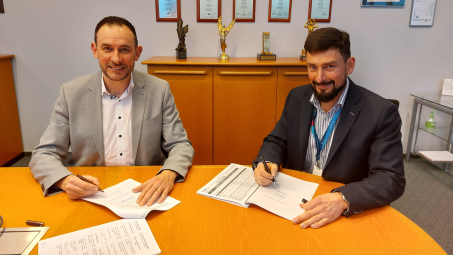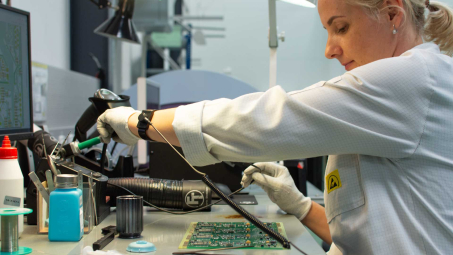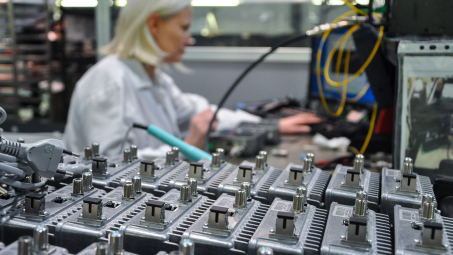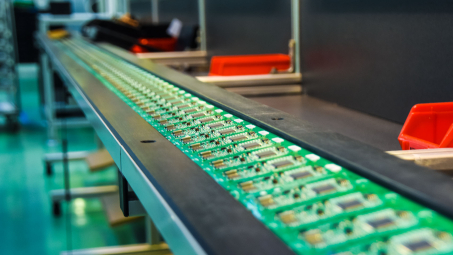Product owner - role and why do we need one?
Agility of projects in great portion depends on planning, short proceedings and updating the status with a huge space for people’s initiative who are engaged in work. But how to harness this revolutionizing freedom to steer where in fact we want to go with our project? Is Product Owner’s role an answer for communicational struggles in agile management? Why is it essential to have such a person in the company ranks?

For those, who are fresh in the
subject, Product Owner is a person on the client’s side who links both parties
and says – straightforward – what is to be done. He or she plays the role of a
delegate and finds the best way to pack the status of a project and establish
the order of the tasks in the backlog. In other words, it is a communicational
and organizational bridge between the client and your company.
When Product Owner raises the hand
First, one needs to point the spots
where Product Owner comes up during projects. In Agile management, in short,
the moment we all hold our breaths to listen what the other party has to say is
at the beginning of every run – be it Daily, or Sprint Planning what is be done
in the backlog, or Sprint Review. There is also Retrospective summing up the
Sprint process which takes place within the company’s team with an option for
Product Owner to join such a meeting. The whole team takes an insight in the
recent Sprint period and, after evaluating over what went well and what went
astray, they adapt new conclusions to the upcoming Sprint time. In other words,
a moment for the question: What could we have done better?
Depending on the project, Product
Owner might be a guest of all Dailies as a listener – Dailies in truth
synchronize the development team. Being present at those meetings might seem
valuable from Product Owner’s perspective, especially when standards and
specifications are in the stage of tests. G.fast DSLs are the best example of
it. One should imagine a situation where the chipset producer has not finished
the work yet, so Product Owner may supervise the areas where the development team
has met impediments.
However, when it is not essential
for Product Owner to be present day by day in our company, it is a must to have
such for a Sprint Review meeting. Sprint Review is the moment for a sum-up on
what happened and where we are. No other meeting is more perfect for hearing
out the feedback of our client represented by Product Owner. This is the person
whom we take the most information from on what to develop in our project. He or
she arranges the rigging and tells if any adjustments are needed in case of
change of the wind direction.
When it comes to Sprint Planning,
that is invaluable to elicit dos and don’ts for the future progress. You do not
want Product Owner to be absent then, especially when holding on to a project
tightly dependent on what is going on the market. Think of wireless communication
protocols used in IoT. Could a switch from SigFox to Lora mess with total
number of devices we could reach? The business perspective is at the mercy of
the industry ecosystem – Product Owner makes sure they both develop arm in arm.
To do that, he or she reorders the backlog architecture and priorities.
But where on Earth is the desk of
this person?
“It is again all about the project –
like everything in Agile,” Daniel Żywalewski, Business Innovation Manager at
VECTOR BLUE HUB, says. “If Product Owner wants to be close to the development
team, they might easily work at that team’s place. This appears as a
convenience especially when the company tests and prototypes – then the team quickly
asks Product Owner for the feedback and takes again a good direction. In other
cases, more cost-sensible is to keep that person on the client’s side wholly.”
Right.
However, at the end of the day, one might ask why it is so important to have
Product Owner engaged in a project. Could it be run without that position?
The economy of having Product Owner
The main point of having a delegate
on the client’s side is to reduce communicational touchpoints between parties.
Imagine teams communicating with their counterparties every day where each has
their own manager entitled to make decisions. That would be enormous number of
discrepancies and a great dismay in the end to get the essence from them all.
Thanks to a delegate, you get the synthetized status of the client’s need, so
the next step to take is to deal the cards among your team. In other words, you
have two organizational bodies conversing rather than the whole hive buzzing
over their best ideas how to optimize, bypass, develop, program, design,
manufacture or master…
“I think, regarding any project,
that would be catastrophic to be a product manager of both parties – client’s
and yours. Physically it is just too much. That’s why you need Product Owner
who passes on neat packages of what’s needed to be done in the backlog. You
skip the process to plan it – that’s a great simplification. After all, that’s
someone who looks down at the product’s development from the helicopter view,”
Daniel explains.
Product Owner can…
It is not easy to find a Product Owner perfect
for your company, and definitely it is a greater challenge to find a perfect
one for a demanding project. All in all, it is a person who shows not only
skills of leadership, management and organization, but also an insight in the
profession itself. In short, try to find someone who can perfectly define
functionalities of products and later take care of their proper development so
that, at the very end, they will meet market demand. It is a lot, but, after
then, choosing the direction is unmistaken.








